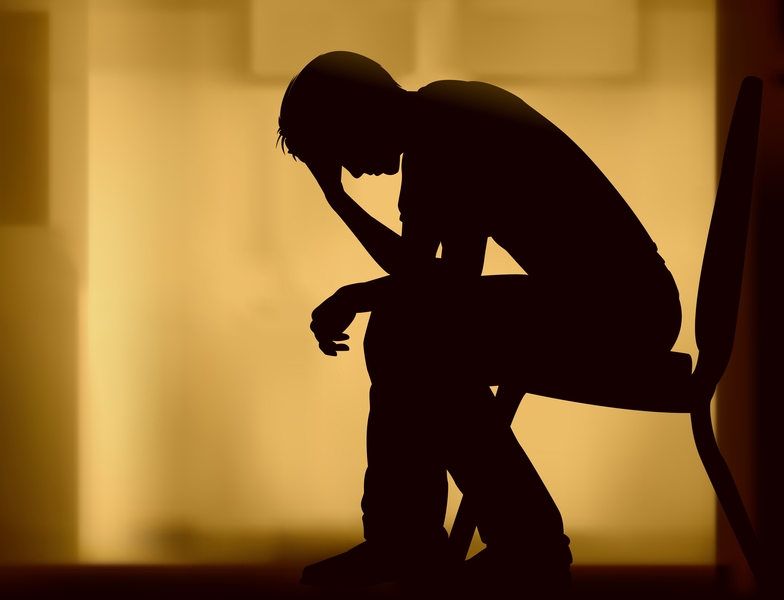When Depression Drugs Don't Help, Talking Might

Get the world’s most fascinating discoveries delivered straight to your inbox.
You are now subscribed
Your newsletter sign-up was successful
Want to add more newsletters?

Delivered Daily
Daily Newsletter
Sign up for the latest discoveries, groundbreaking research and fascinating breakthroughs that impact you and the wider world direct to your inbox.

Once a week
Life's Little Mysteries
Feed your curiosity with an exclusive mystery every week, solved with science and delivered direct to your inbox before it's seen anywhere else.

Once a week
How It Works
Sign up to our free science & technology newsletter for your weekly fix of fascinating articles, quick quizzes, amazing images, and more

Delivered daily
Space.com Newsletter
Breaking space news, the latest updates on rocket launches, skywatching events and more!

Once a month
Watch This Space
Sign up to our monthly entertainment newsletter to keep up with all our coverage of the latest sci-fi and space movies, tv shows, games and books.

Once a week
Night Sky This Week
Discover this week's must-see night sky events, moon phases, and stunning astrophotos. Sign up for our skywatching newsletter and explore the universe with us!
Join the club
Get full access to premium articles, exclusive features and a growing list of member rewards.
Talk therapy may be a helpful supplemental treatment for people with depression who have not responded to medication, a new study from the United Kingdom suggests.
Researchers found that people with depression who had not improved despite taking antidepressants were three times more likely to experience a reduction in their depression symptoms if talk therapy was added to their treatment regimen compared with those who continued to take only antidepressants.
The study is one of the first large trials to test the effectiveness of talk therapy given in tandem with antidepressants, the researchers said.
Up to two-thirds of people with depression don’t respond fully to antidepressant treatment, and the findings suggest a way to help this group, the researchers said.
“Until now, there was little evidence to help clinicians choose the best next step treatment for those patients whose symptoms do not respond to standard drug treatments," study researcher Nicola Wiles of the University of Bristol's Centre for Mental Health, Addiction and Suicide Research said in a statement.
The study followed patients for one year. Future studies should examine the effectiveness of this treatment combination over the long term, as patients with depression can relapse after treatment, the researchers said.
In addition, because some patients did not improve substantially when talk therapy was added, further research is needed to find alternative treatments for this group, Wiles added.
Get the world’s most fascinating discoveries delivered straight to your inbox.
The study included about 470 people with depression who had not responded to antidepressants after six weeks of treatment. About half received cognitive behavioral therapy — a type of talk therapy — in addition to their usual antidepressant treatment, and half continued antidepressants without the addition of talk therapy.
After six months, about 46 percent of patients in the talk therapy group experienced at least a 50 percent reduction in their depressive symptoms. By contrast, 22 percent of people in the antidepressant group improved by the same amount. By the 12-month mark, both groups experienced similar rates of improvement.
Often, talk therapy is more difficult to access than medication, the researchers said. And people may not be able to afford the treatment if their health insurance does not cover it. Only about 25 percent of Americans with depression have received talk therapy during the past year, they said.
Pass it on: People with depression who have not responded to antidepressants may benefit from the addition of talk therapy.
Follow Rachael Rettner on Twitter @RachaelRettner, or MyHealthNewsDaily @MyHealth_MHND. We're also on Facebook & Google+.

Rachael is a Live Science contributor, and was a former channel editor and senior writer for Live Science between 2010 and 2022. She has a master's degree in journalism from New York University's Science, Health and Environmental Reporting Program. She also holds a B.S. in molecular biology and an M.S. in biology from the University of California, San Diego. Her work has appeared in Scienceline, The Washington Post and Scientific American.
 Live Science Plus
Live Science Plus










